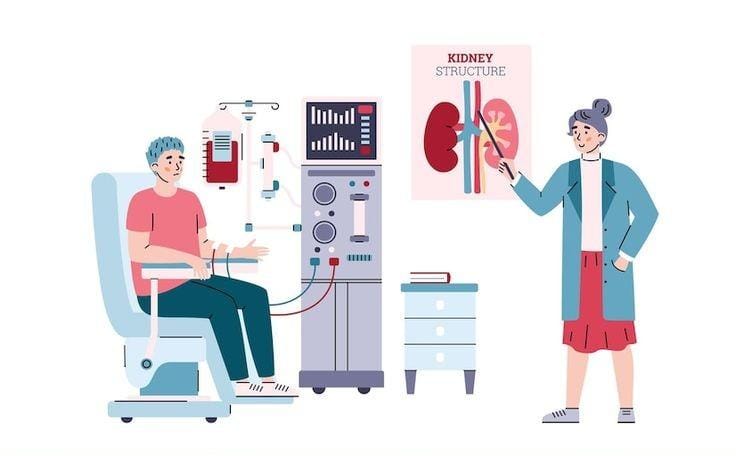
B.Sc. Renal Dialysis Technology course offers a specialized and vital career pathway within the healthcare industry. Renal dialysis technologists, also known as dialysis technicians or hemodialysis technicians, are responsible for operating and maintaining dialysis machines, which are essential for patients with kidney failure. Here's an overview of the scope of a B.Sc. Renal Dialysis Technology course:
- Critical Role in Healthcare Renal dialysis technologists play a crucial role in the treatment of patients with kidney disease. They operate dialysis machines to remove waste and excess fluids from the blood, helping to manage patients' overall health.
- Diverse Work Settings Graduates can find employment in various healthcare settings, including hospitals, dialysis centers, outpatient clinics, and home healthcare agencies.
- Growing Demand The demand for renal dialysis technologists is increasing due to the rising prevalence of kidney disease and the aging population. Dialysis is a life-sustaining treatment, and these professionals ensure its safe and effective delivery.
- Patient-Centered Care Renal dialysis technologists interact closely with patients, monitoring their condition during treatment and providing emotional support, contributing significantly to patient comfort and well-being.
- Competitive Salaries This profession typically offers competitive salaries, and experienced technologists may have opportunities for salary growth and specialization, such as pediatric or geriatric dialysis.
- Technological Advancements As dialysis technology evolves, renal dialysis technologists must stay updated with the latest equipment and techniques, making it a dynamic and evolving field.
- Interdisciplinary Collaboration They collaborate closely with nephrologists, nurses, and other healthcare providers to ensure that patients receive high-quality dialysis care.

 9606080651/653/654
9606080651/653/654